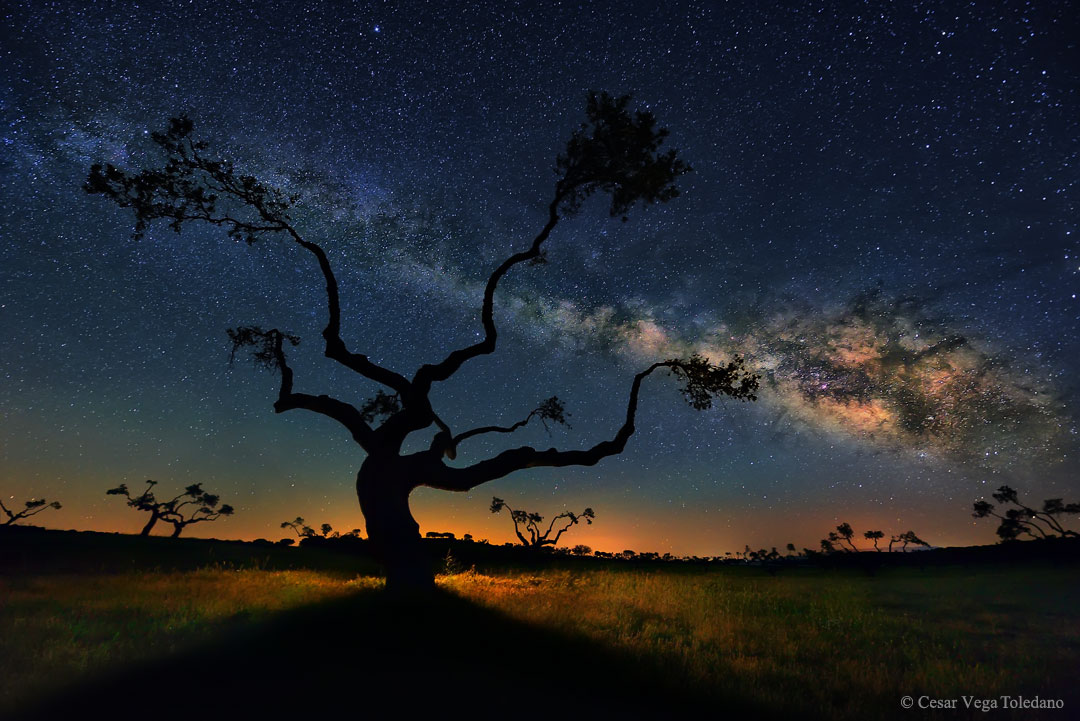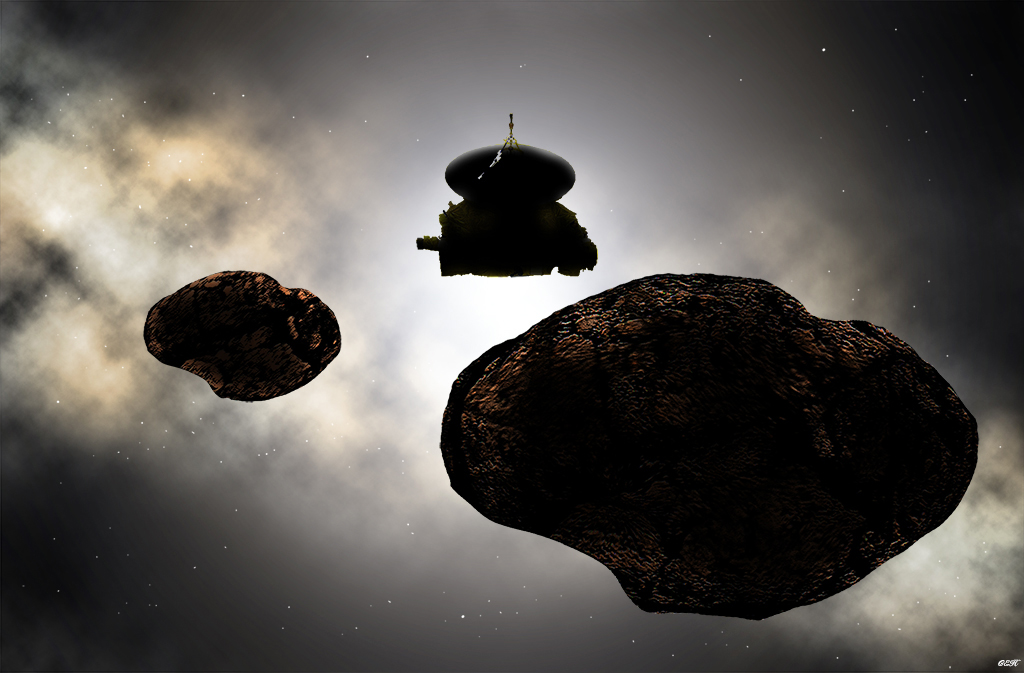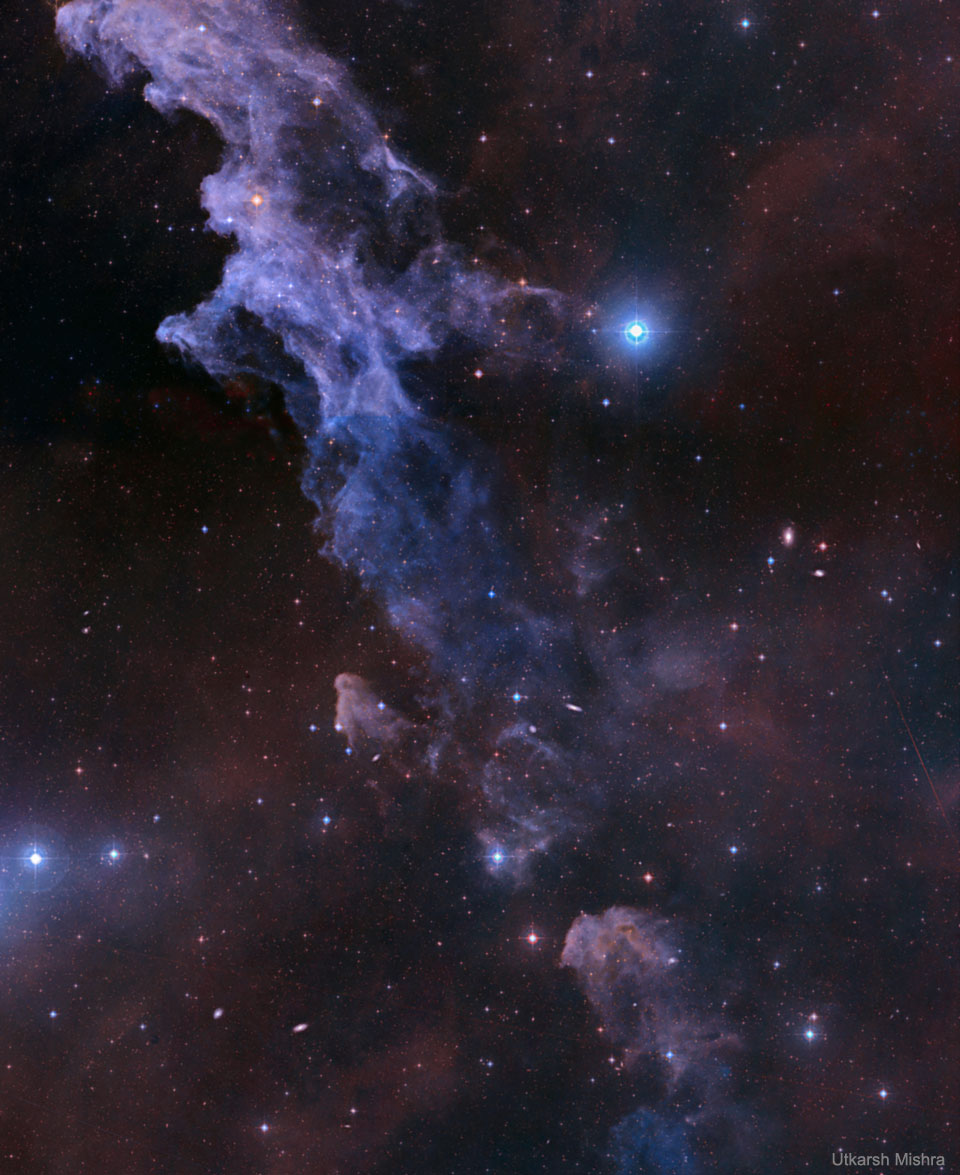| | | NPR has obtained an internal investigative report that alleges mismanagement at a little-known federal agency in charge of producing and distributing official documents, including 2020 census forms. |
| |
|
|
|
| You received this message because you're subscribed to our Breaking News Alerts emails.
| Unsubscribe | Privacy Policy |
NPR
1111 N. CAPITOL ST. NE
WASHINGTON DC 20002 |
| |
| | | |   |  |
| | | | | The 69-year-old law professor turned consumer advocate is a liberal icon — but faces a crowded field of Democrats eager to challenge President Trump in 2020. |
| |
|
|
|
| You received this message because you're subscribed to our Breaking News Alerts emails.
| Unsubscribe | Privacy Policy |
NPR
1111 N. CAPITOL ST. NE
WASHINGTON DC 20002 |
| |
| | | |   |  |
Astronomy Picture of the Day Discover the cosmos! Each day a different image or photograph of our fascinating universe is featured, along with a brief explanation written by a professional astronomer. 2018 December 30
 The Galaxy Tree
Image Credit & Copyright: César Vega Toledano ; Rollover Annotation: Judy Schmidt Explanation: First came the trees. In the town of Salamanca, Spain, the photographer noticed how distinctive a grove of oak trees looked after being pruned. Next came the galaxy. The photographer stayed up until 2 am, waiting until the Milky Way Galaxy rose above the level of a majestic looking oak. From this carefully chosen perspective, dust lanes in the galaxy appear to be natural continuations to branches of the tree. Last came the light. A flashlight was used on the far side of the tree to project a silhouette. By coincidence, other trees also appeared as similar silhouettes across the relatively bright horizon. The featured image was captured as a single 30-second frame earlier this month and processed to digitally enhance the Milky Way. Free Download: 2019 APOD Calendar (v5)
Tomorrow's picture: space witch
< | Archive | Submissions | Index | Search | Calendar | RSS | Education | About APOD | Discuss | >
Authors & editors: Robert Nemiroff (MTU) & Jerry Bonnell (UMCP)
NASA Official: Phillip Newman Specific rights apply.
NASA Web Privacy Policy and Important Notices
A service of: ASD at NASA / GSFC
& Michigan Tech. U.
This is an automated email. If you notice any problems, just send me a note at gtracy@gmail.com. You can add and remove email addresses to this distribution list here, https://apodemail.org.Unsubscribe
| | | | This year, NPR's most popular health stories ranged from practical advice for avoiding back pain to a controversial new frontier in Alzheimer's research. Here are some of the highlights: 1o stories that reflect the health issues that mattered to you in 2018. When NPR's Michaeleen Doucleff was travelling in Liberia in 2014, she noticed when Liberian women bent over to work in their gardens, they kept their backs straight like a tabletop. Later she learned "table" bending is common in many places around the world except in Western societies where we tend bend our spines into a C shape when we lean over. This habit puts more stress on the spinal disks and may lead to back pain. Doucleff's story includes expert instructions from movement and anatomy experts for how to spare your spine.As though having a heart attack at age 44 wasn't bad enough, Drew Calver, father and high school teacher, was hit with a $109,000 bill when he got home. "They're going to give me another heart attack stressing over this bill," Calver said.
Our story, published in partnership with Kaiser Health News, detailed how Calver fell victim to twin medical billing practices that increasingly bedevil many Americans: surprise bills and balance billing.Millions have been spent on Alzheimer’s research without producing a cure, a method of prevention or even a clear understanding of what causes the disease. Now there’s a new push to investigate a radical theory: Could a germ be the cause? Some think a microbe could be the trigger leading to protein build up in the brain and a flare-up in the immune system.
|
Maybe the kids aren't alright. The results of a survey of 20,000 adults suggest a lot of Americans experience of loneliness and social isolation -- especially young adults. Using one of the best-known tools for measuring loneliness — the UCLA Loneliness Scale — the survey found that more than half of respondents felt isolated.
Those in Generation Z, born between the mid-1990s and the early 2000s, had the highest overall loneliness scores. This phenomena may be linked to social media use and screen time, according to other research. Lyme disease was once unheard of in western Pennsylvania, where Barbara Thorne, now an entomologist at the University of Maryland, spent time as a kid. It wasn’t until she got bitten herself that she realized that ticks in that part of Pennsylvania had become widely infected with the bacteria that causes lyme, with symptoms that can range from fever, fatigue and a rash, to serious damage to the joints, heart and nervous
Prevalence of lyme and other tick-borne diseases has been steadily increasing. But Thorne has advice for how to avoid getting bitten, and what to do if you are.
|
When NPR editor Gisele Grayson and her mom Carmen Grayson decided to get their DNA tested, they were met with a little surprise. Carmen had 31 percent Italian and Southern European DNA, but Gisele had none. To find out what was up with that, they met with genetics expert Dr. Aravinda Chakravarti. They learned that the ways DNA testing companies analyze your genes leave lots of room for interpretation. In this time of rising heroin and fentanyl overdoses, how do you make sure you’re prepared to save a life? Many states now allow anyone to buy the opioid overdose antidote, naloxone. But for a nurse named Isela, choosing to carry the drug nearly lost her the ability to buy life insurance.
The insurance company denied her because it feared she was a drug user herself. "But I'm a nurse, I use it to help people," Isela remembers telling her agent.
Her struggles have led to a push to get insurance companies to change their policies.Nearly 19 million Americans take fish oil supplements and some 37 percent of us take vitamin D. But long-awaited research on both supplements calls some of their health claims into question.
Researchers found no protective benefit for cancer and overall cardiovascular events from taking the supplements. (They did find a benefit for heart attack prevention for African-Americans and people who eat little fish but more study is needed.)
The story prompted a wave of questions from our readers and listeners. Many of you wrote in asking, essentially, should I stop taking these supplements?
Here are answers to that question and moreAs evidence grows that chronic sleep deprivation puts teens at risk for physical and mental health problems, there is increasing pressure on school districts around the country to consider a later start time.
In Seattle, school and city officials recently shifted start times for middle and high schools nearly an hour later to 8:45 a.m. Researchers studied teens from before and after the change and got hard proof that it helps: Start school later and teens get more sleep.Charlie Hinderliter wasn't opposed to the flu shot. He just didn't think he was at risk of a bad case of the flu since he was healthy and in his 30s.
Turns out, he was wrong. After 58 days in the hospital, a week in a medically induced coma, two surgeries and three weeks in a nursing home, he's now speaking out to encourage everyone to do something he'd never done before: Get a flu shot.
If his story isn't motivating enough, here are 5 more reasons to get the flu shot.
* * *
We hope you enjoyed these stories. Find more of NPR's health journalism on Shots and follow us for daily stories at @NPRHealth.
Your Shots editor,
Carmel Wroth
|
|
| You received this message because you're subscribed to our Health emails.
| Unsubscribe | Privacy Policy |
NPR
1111 N. CAPITOL ST. NE
WASHINGTON DC 20002 |
| |
| | | | 
| | | | On movie screens, ladies took the lead and threw down In 2018, Hollywood offered a range of explorations of women and power: how they wield it, fight for it and abuse it, and what it costs them. "Ultimately, they are coming alive because they are finding rage and finding their empowerment and pushing back," Gillian Flynn, screenwriter of Widows says. "And that ... has been so much of what the #MeToo movement has been about."
Check out 50 things NPR’s Linda Holmes loved in 2018 and Pop Culture Happy Hour's resolutions and predictions for the coming year. |
A year of massive political movement — except on climate change November saw the Democratic Party end one-party rule in Washington by wresting control of the House from Republicans. That election produced an even stronger public consensus against gerrymandering, the practice of letting politicians redraw political districts. The courts largely agreed, but politicians will keep pushing their case in 2019. Another broad move saw gun-control advocates, newly galvanized by a mass shooting at a Florida high school, turning their focus away from the federal level and toward the states, more than half of which passed new laws. Immigration also continued to be a flashpoint, with the Trump administration halving refugee resettlement and rejecting more legal immigrants than ever before. And despite it being the fourth-hottest year on record and ever more precise and dire warnings on the looming impact of climate change, politicians in Washington spent another year choosing not to act. |
|
Dig in: Some of the stories and series NPR focused its efforts on this year - Maternal mortality: The United States has the worst outcomes for new mothers in the developed world. Working with ProPublica, we examined why that is and how the health care system can improve.
- Black lung: NPR investigative journalist Howard Berkes found confirmation that the disease once again is spiking in coal country — and that U.S. regulators could have prevented it.
- Puerto Rico after Hurricane Maria: NPR’s Adrian Florido spent a year detailing the island's struggle — exacerbated by FEMA failures — to recover from the catastrophic September 2017 storm.
- How to raise a human: We collected the best parenting lessons from cultures around the world.
- Bill of the month: In collaboration with Kaiser Health News, NPR investigates some of the astronomical sums the U.S. health care industry demands from those it treats.
- How China is reshaping the world: The country has grown more comfortable wielding its influence around the world, buying up Western assets, investing in developing countries and quashing dissent beyond its borders.
- American Anthem: These are the songs that challenge and unite us.
- 1968: How we got here: NPR looks back at the critical moments — both unforgettable and forgotten — of a year that transformed America.
Thank you for subscribing to and reading this newsletter in 2018. We look forward to bringing you more of the best that NPR has to offer next year. |
|
| You received this message because you're subscribed to our Best of NPR emails.
| Unsubscribe | Privacy Policy |
NPR
1111 N. CAPITOL ST. NE
WASHINGTON DC 20002 |
| |
| | | |   |  |
Astronomy Picture of the Day Discover the cosmos! Each day a different image or photograph of our fascinating universe is featured, along with a brief explanation written by a professional astronomer. 2018 December 29
 New Horizons at Ultima Thule
Illustration Credit: Carlos Hernandez for NASA, Johns Hopkins Univ./APL, Southwest Research Institute Explanation: When we celebrate the start of 2019, on January 1 the New Horizons spacecraft will flyby Ultima Thule. A world of the Kuiper belt 6.5 billion kilometers from the Sun, the nickname Ultima Thule (catalog designation 2014 MU69) fittingly means "beyond the known world". Following its 2015 flyby of Pluto, New Horizons was targeted for this journey, attempting the most distant flyby for a spacecraft from Earth by approaching Ultima Thule to within about 3500 kilometers. The tiny world itself is about 30 kilometers in size. This year, an observing campaign with Earth-based telescopes determined the shape of the object to be a contact binary or a close binary sytem as in this artist's illustration. New Horizons will image close up its unexplored surface in the dim light of the distant Sun. Tomorrow's picture: galaxy tree
< | Archive | Submissions | Index | Search | Calendar | RSS | Education | About APOD | Discuss | >
Authors & editors: Robert Nemiroff (MTU) & Jerry Bonnell (UMCP)
NASA Official: Phillip Newman Specific rights apply.
NASA Web Privacy Policy and Important Notices
A service of: ASD at NASA / GSFC
& Michigan Tech. U.
This is an automated email. If you notice any problems, just send me a note at gtracy@gmail.com. You can add and remove email addresses to this distribution list here, https://apodemail.org.Unsubscribe
| | | | | | You received this message because you're subscribed to our NPR Music emails.
| Unsubscribe | Privacy Policy |
NPR
1111 N. CAPITOL ST. NE
WASHINGTON DC 20002 |
| |
| | | |   |
| | | | |










